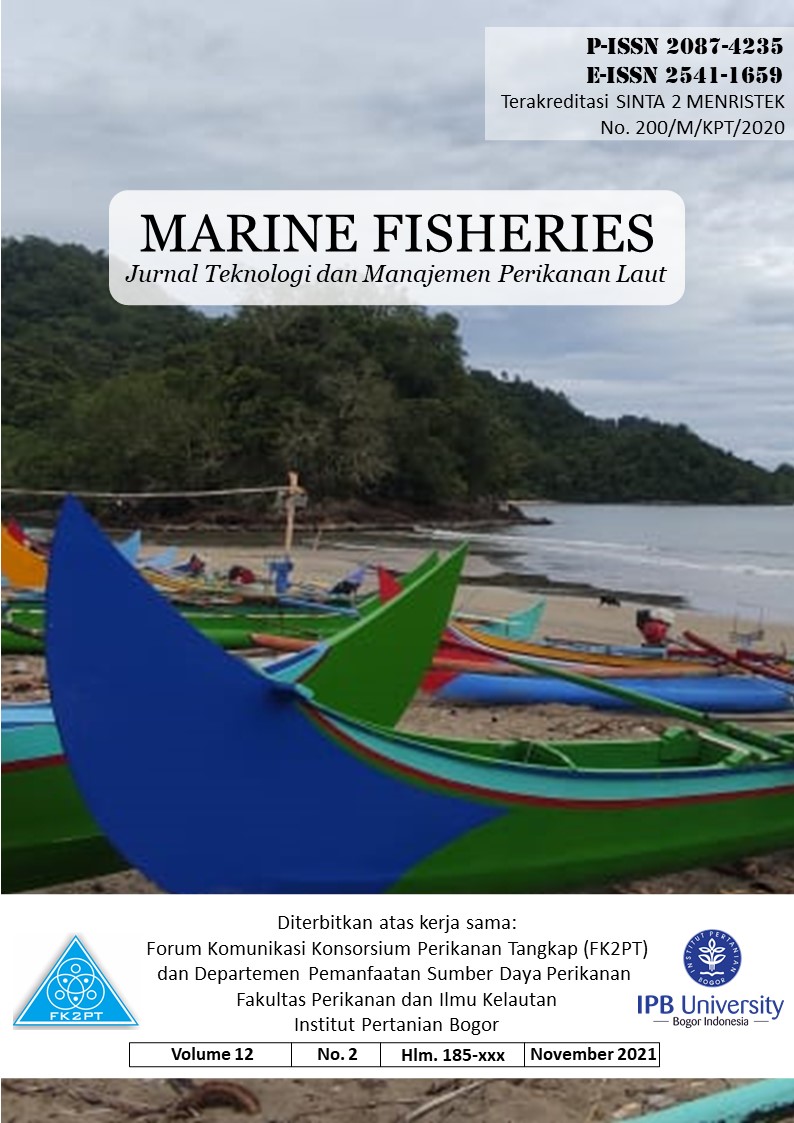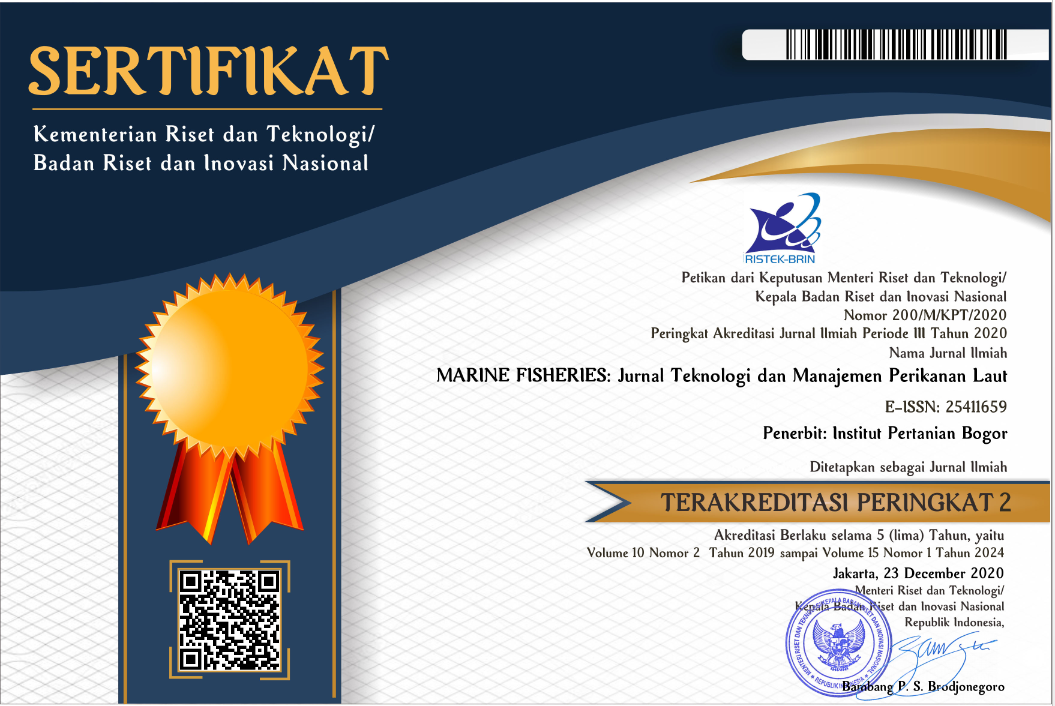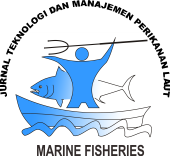Muarareja Fishermen Perceptions on The Prohibition of Arad and Environmentally Friendly Fishing Tool Assistance Programs
Abstract
Arad has been prohibited because of its damages to the environment. However, fishers in Muarareja continue to operate the gear even though environmentally friendly fishing gear (traps) have been granted as a substitution. The reason behind the rejection of substitute fishing gear is interesting to be investigated. Therefore, the study aim to 1) analyze fishers' perceptions of arad prohibition, traps, and environmentally friendly fishing gear program; 2) evaluate fishers' perception on policies concerning arad prohibition and fishing gear substitution; and 3) formulate the recommendations. This study involved 35 arad fishers in Muarareja Village who has been granted with traps as substitute fishing gear. Variables in this study are fishers' perceptions on arad and trap, the policy of arad prohibition, and fishers' perception on the environmentally friendly fishing gear program. Data were collected through interviews and questionnaires. Data were analyzed by scoring respondents' answers based on provided statements. The results showed that fishers did not agree that arad is not environmentally friendly, while the trap is. Fishers are also against arad prohibition and refuse to use traps as a replacement. Furthermore, fishers who received traps are still very dependent on arad and use traps only for alternative fishing gear. Recommendations for the policy of arad prohibition are arad should be allowed with special regulation, and further education is required for fishers to understand the correlation between unselective fishing gear and environmental damages. Recommendations for the environmentally friendly fishing gear program are that the provision of traps should be continued with several adjustments following fishermen's preferences.
Keywords: Prohibition of arad, environmentally-friendly fishing gear, traps.
Downloads
Author(s) who published in this journal agree to following terms:
- Author(s) must understand and agree that the copyright script in published owned by the Marine Fisheries Journal. The copyright includes reproducing and selling the manuscript to all parties.
- Everyone can cite every manuscript published in Marine Fisheries for educational purposes, with the author's name and the Marine Fisheries Journal on reference.









